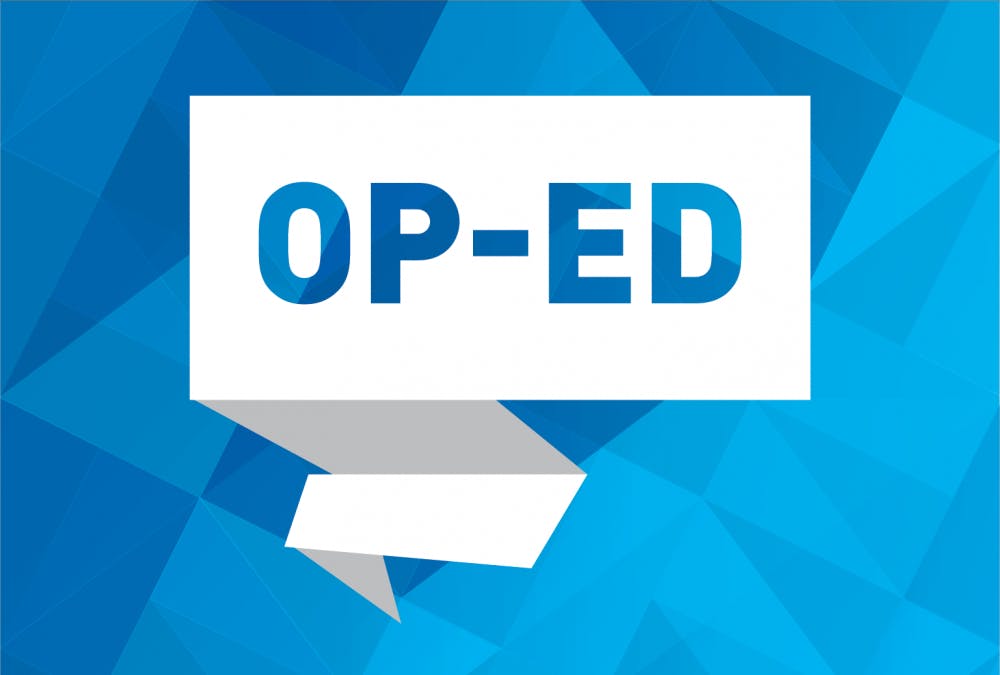Some of the most polarizing debates of the last few weeks came from an unlikely source – when rapper Kanye West thrust himself into the spotlight with an avalanche of political tweets.
Among the most noteworthy were tweets expressing support for President Donald Trump and conservative commentator Candace Owens. Subsequent posts included one placing blame on former President Barack Obama for struggles faced by the city of Chicago and another releasing private texts between West and John Legend after Legend politely asked West to reconsider what he posted.
Conservative pundits applauded the tweets as an example of an African-American celebrity unafraid to voice support for an unpopular political position. Trump himself retweeted several of West’s tweets and even gave him shoutouts during a TV interview and a rally in Michigan.
Republican analysts claimed that the Democratic Party expected West and others like him – namely, racial minorities and major celebrities – to be submissive to the progressive agenda. American conservatism, they said, accepted differing opinions with open arms.
I found that the same conservative tolerance failed to emerge when West posted a picture of Parkland-shooting survivor and gun-control advocate Emma González, calling her his “hero.” Many of the same users voicing support for West’s right to his own opinions only a day earlier were silent or even critical of him for what they perceived as a betrayal to the conservative cause.
I don’t see West’s tweet that way. I see it as him testing the waters and gauging reactions to his controversy on both sides. Do conservatives really support his right to voice a controversial opinion? Do liberals really believe that as a black musician, he should be forced to toe the party line? West is using his tweets as an experiment to answer a question: Are we as divided in this country as we believe?
The answer, for me, is that West knows what many of us know but might be too afraid to voice aloud: liberals and conservatives have far more in common than we think, and most of us support the right of everyone to think the way they please. The far-left is a fringe portion of the Democratic Party, just as the far-right is a fringe part of the GOP.
Polarization slowly infected this country throughout the 2016 election season, and it continues through allegations of "Russian bots," "fake news” and “witch hunts.” Moderate voters are often forced to pick a side or else feel ashamed of sympathizing with the wrong group.
I am just as guilty of this as anyone. Though I’ve always considered myself to be right-of-center, the brashness and controversy of then-candidate Trump disgusted me. Figuring that I wanted no part of a Trump-led GOP, I voted for Marco Rubio in the Republican primaries and decided not to vote at all in the general election.
More than two years later, I now feel increasingly obligated to defend and support the president as a means of distancing myself from a side of political discussion that I consider to be more focused on bringing down Trump than lifting up the United States of America. I even recently purchased a red Make America Great Again hat, though I don’t wear it in public out of concern for my own safety as well as respect for those who may not view Trump in a favorable light.
I use this example not to point fingers but rather to show how my own ideas about politics changed so rapidly. It’s somewhat unnerving to remember fellow students in my eighth-grade civics class being more comfortable sharing their opinions on immigration laws than many students, myself included, in an undergraduate public-policy seminar. What changed?
Depending on whom you ask the question to, responses could vary anywhere from the mental softness of today’s generation of college students to a failure at the very highest levels of national political discourse in the media and in Washington, D.C. There is little doubt that our nation is in a difficult spot regarding how we share political opinions.
Enjoy what you're reading?
Signup for our newsletter
West is doing the right thing. He’s making people realize that it is okay, or perhaps even necessary, to openly and politely disagree with family and friends on politics. That’s exactly the sort of message we need in an era of hyper-partisanship and media echo chambers.
It’s time for all of us with even the tiniest bit of political opinion to look ourselves in the mirror and re-examine the way we discuss politics. West’s tweets were never about “freeing blacks from the Democratic plantation” or even about promoting his upcoming album. Rather, they are a call to action for a broken and tired nation to pull back together. Love the people around you and try to understand the rationale for their choices — but never be ashamed to swim against the tide.
Contact opinions writer Riley Blake at riley.blake@richmond.edu.
Support independent student media
You can make a tax-deductible donation by clicking the button below, which takes you to our secure PayPal account. The page is set up to receive contributions in whatever amount you designate. We look forward to using the money we raise to further our mission of providing honest and accurate information to students, faculty, staff, alumni and others in the general public.
Donate Now



